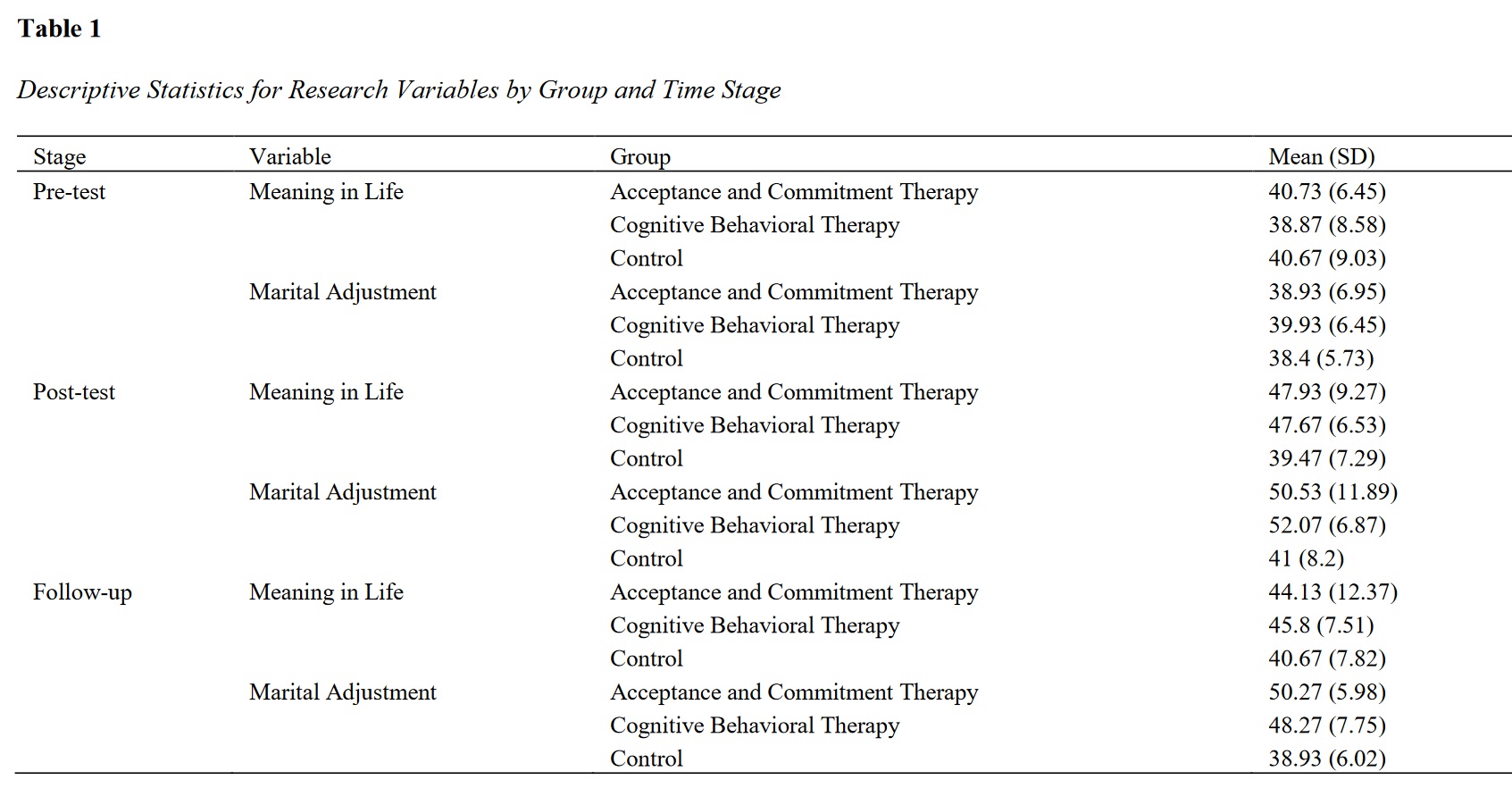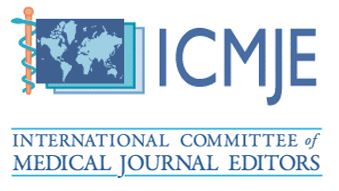Comparison of the Effectiveness of Residential Group Therapy Based on Acceptance and Commitment Therapy and Cognitive Behavioral Therapy on Meaning in Life and Marital Adjustment in Couples
Keywords:
Residential Group Therapy, Acceptance and Commitment Therapy , Cognitive Behavioral Therapy , Meaning in Life, Marital AdjustmentAbstract
Objective: The aim of this research was to compare the effectiveness of residential group therapy based on Acceptance and Commitment Therapy (ACT) and Cognitive Behavioral Therapy (CBT) on meaning in life and marital adjustment in couples.
Methods and Materials: This research utilized a quasi-experimental method with a pre-test, post-test, and control group design. The study population consisted of couples who visited family counseling centers and health homes in Birjand city in 2021. From this population, 45 individuals were selected through convenience sampling and randomly assigned to three groups: control group (15 individuals), ACT group (15 individuals), and CBT group (15 individuals). Intervention sessions for the ACT group were conducted over eight 45-minute sessions within one month (two sessions per week), while CBT sessions were conducted weekly for nine weeks, with each session lasting one and a half hours in a group setting. After the intervention sessions, the Meaning in Life and Marital Adjustment Questionnaires were administered as post-tests, and three months after the end of the intervention as follow-up. The results of the three groups were compared again. In this study, considering the assumptions for parametric tests, and analysis of covariance (ANCOVA) were employed.
Findings: The results indicated no significant difference in the effectiveness of ACT and CBT group therapies in increasing the variables of meaning in life and marital adjustment. Comparison of the mean scores of the experimental groups in the post-test and follow-up stages also showed that the effects of the independent variables persisted during the follow-up stage, and no significant difference was observed between the post-test and follow-up stages.
Conclusion: The findings indicated no significant difference between Acceptance and Commitment Therapy (ACT) and Cognitive Behavioral Therapy (CBT) in improving meaning in life and marital adjustment among couples. Both therapies demonstrated effectiveness in enhancing psychological flexibility and addressing cognitive distortions, contributing to improved well-being and relational satisfaction.
Downloads

Downloads
Additional Files
Published
Issue
Section
License
Copyright (c) 2024 Fatemeh Sadat Sedighi (Author); Tahmoores Aghajani Hashjin (Corresponding Author); Mohsen Jadidi (Author)

This work is licensed under a Creative Commons Attribution-NonCommercial 4.0 International License.



































